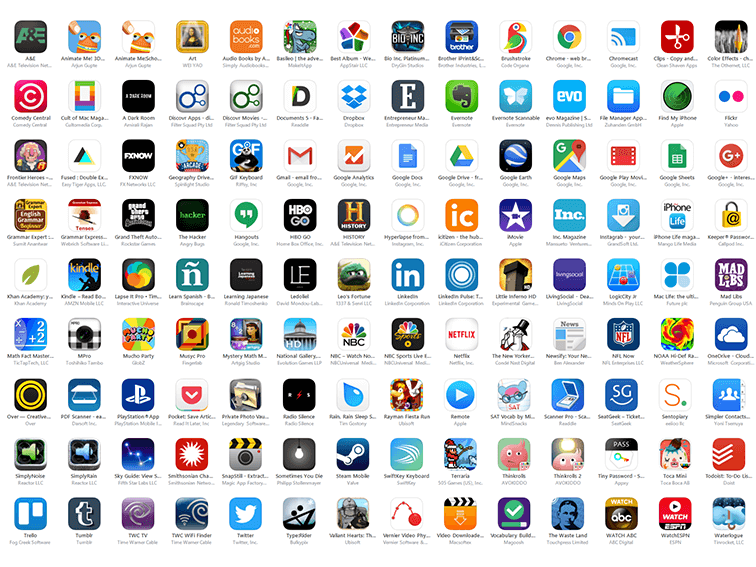News Blast
Your daily source for breaking news and insightful articles.
Apps That Make Learning Feel Like a Game
Discover fun and engaging apps that turn learning into an exciting game, making education irresistible for all ages!
Top 10 Educational Apps That Turn Learning into an Adventure
In today's digital age, education has evolved beyond the classroom, making way for educational apps that transform traditional learning into exciting adventures. These apps combine engaging content with interactive features, encouraging students to explore new concepts while having fun. Here are the Top 10 Educational Apps That Turn Learning into an Adventure:
- Khan Academy Kids: A free app designed for children ages 2-8 that offers a variety of subjects through games and animated lessons.
- Duolingo: Learn languages in a gamified format where users earn points and rewards for completing lessons.
- Prodigy Math: A math game that incorporates RPG elements, allowing kids to practice math while embarking on quests.
- ScratchJr: A creative coding app for younger children that introduces programming concepts through interactive storytelling.
- NASA Visualization Explorer: Engage with real-time data and dazzling visuals that teach users about space and earth science.
- ABCmouse: An early learning academy for children ages 2-8, offering a comprehensive curriculum in a fun, interactive way.
- Quizlet: Turn studying into a game with flashcards, tests, and learning activities tailored to users’ needs.
- Google Arts & Culture: Explore museums, cultures, and history through virtual tours and interactive exhibits.
- LightBot: A programming puzzle game that teaches coding concepts through engaging challenges.
- Flipgrid: A social learning platform that allows students to share videos about what they’re learning, promoting creativity and collaboration.

How Game-Based Learning Apps Enhance Student Engagement
Game-based learning apps are revolutionizing the educational landscape by fostering a dynamic and interactive environment that significantly enhances student engagement. Unlike traditional teaching methods, these apps utilize gamification elements such as points, badges, and leaderboards to motivate learners. By incorporating educational content into engaging game mechanics, students are more likely to participate actively in their own learning journey. For instance, challenges and missions in these apps require students to apply critical thinking and problem-solving skills, making the process entertaining as well as informative.
Moreover, the responsive nature of game-based learning apps allows for real-time feedback, enabling students to track their progress and understand their strengths and weaknesses. This immediate feedback can reinforce positive behavior and learning strategies, leading to increased motivation and a sense of accomplishment. Additionally, the collaborative features of many of these applications promote teamwork and communication among peers, which are essential skills in both academic and real-world settings. The combination of fun, interactive content and practical learning fosters a deeper connection to the material, ultimately driving better educational outcomes.
Can Playing Educational Games Improve Retention and Understanding?
In today's fast-paced digital age, the question arises: Can playing educational games improve retention and understanding? Numerous studies suggest that these interactive tools not only engage learners but also enhance cognitive skills. When learners play educational games, they are often required to solve problems, which stimulates critical thinking. This immersive experience helps in retaining information longer compared to traditional learning methods. By encouraging elements like competitive play and collaboration, educational games make the learning process enjoyable and memorable.
Additionally, educational games provide instant feedback, allowing players to identify areas for improvement while reinforcing their knowledge. Unlike conventional teaching methods that can be monotonous, games introduce dynamic scenarios where learners can apply concepts in a practical context. This approach fosters deeper understanding as players navigate through challenges and make critical decisions. Ultimately, integrating these games into educational curricula could be a transformative strategy in improving retention and understanding across various subjects.